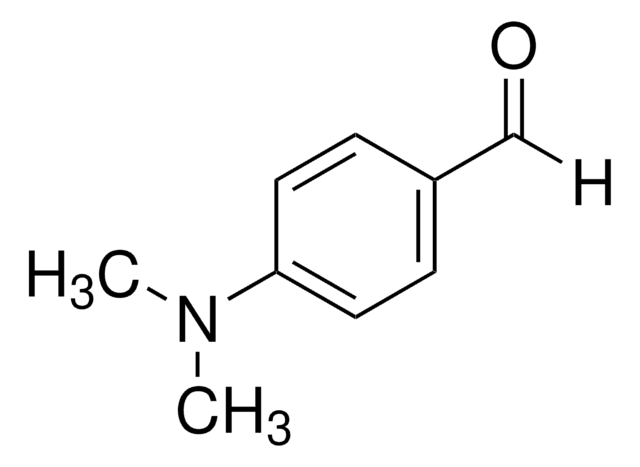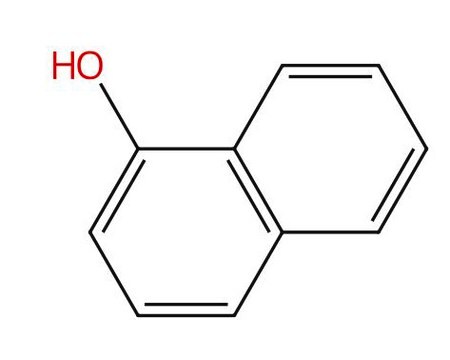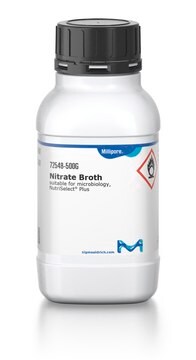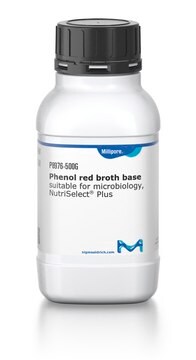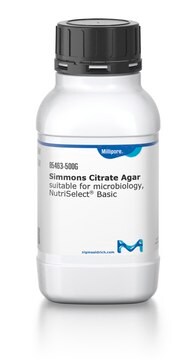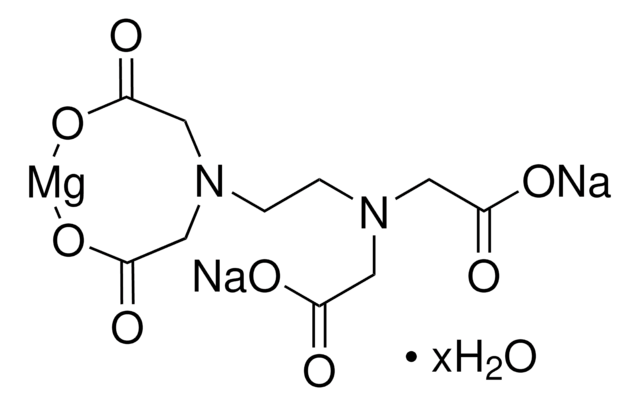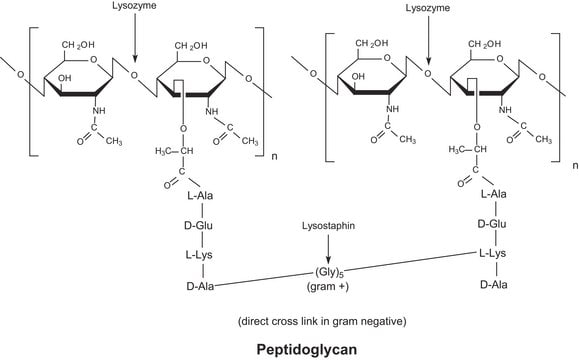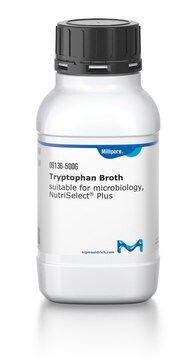39442
Barritt′s Reagent B
suitable for microbiology
Synonym(s):
Potassium hydroxyde solution, VP2 Reagent, Voges-Proskauer Test with Barritt’s Reagent B
About This Item
Recommended Products
Agency
according to ISO 11290-1:2017
according to ISO 11290-2:2017
according to ISO 22964:2017
Quality Level
product line
BioChemika
shelf life
limited shelf life, expiry date on the label
composition
distilled water, 100 mL
potassium hydroxide, 40 g
technique(s)
microbe id | metabolite detection: suitable
application(s)
clinical testing
environmental
food and beverages
pharmaceutical
microbiology
suitability
Enterobacter spp.
Klebsiella spp.
Lactobacillus spp.
aciduric bacteria
bacteria
Application
Caution
Signal Word
Danger
Hazard Statements
Precautionary Statements
Hazard Classifications
Acute Tox. 4 Oral - Eye Dam. 1 - Met. Corr. 1 - Skin Corr. 1A
Storage Class Code
8B - Non-combustible corrosive hazardous materials
WGK
WGK 1
Flash Point(F)
Not applicable
Flash Point(C)
Not applicable
Personal Protective Equipment
Choose from one of the most recent versions:
Already Own This Product?
Find documentation for the products that you have recently purchased in the Document Library.
Customers Also Viewed
Articles
For microbiologists the most fundamental stain was developed in 1884 by the Danish bacteriologist Hans Christian Gram.
Sigma-Aldrich.com presents an article concerning Differentiation of Escherichia coli from coliforms.
Our team of scientists has experience in all areas of research including Life Science, Material Science, Chemical Synthesis, Chromatography, Analytical and many others.
Contact Technical Service

